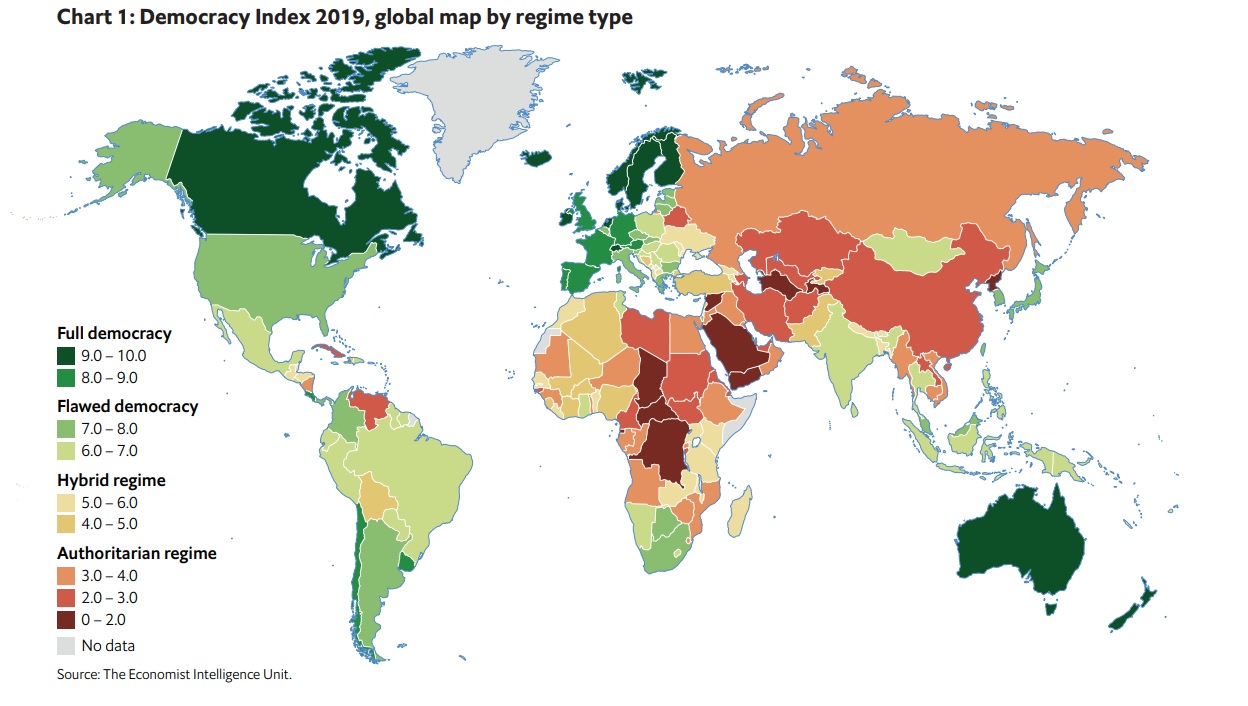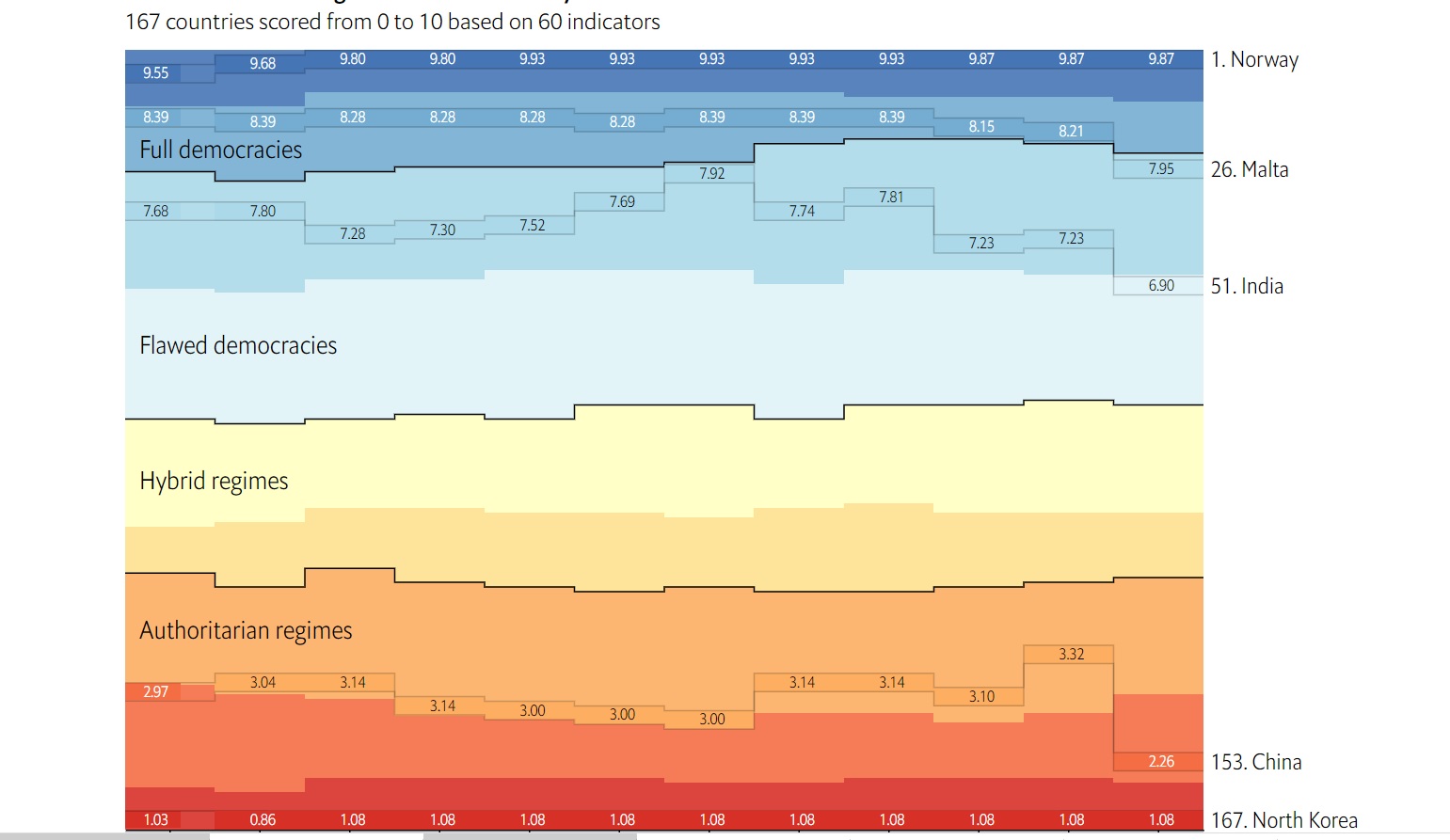The respected U.K-base Economist through its sister ‘intelligence unit’, has released its 2020 democracy index.
It rates the level of democracy in some 167 countries based on five categories”: electoral process and pluralism, the functioning of government, political participation, democratic political culture and civil liberties.
The report notes this year, the overall rating at 5.44 out of 10, is the lowest rating for democracy since the annual rating began in 2006. The top and bottom show little change with Norway at number one, where it has traditionally been, followed by Iceland Sweden, New Zealand, and Finland. N, Korea remains in its traditional last place at the bottom of the list. Canada is tied with Denmark for seventh spot.

Surveys by the Pew Research Center on global attitudes towards democracy have in recent years revealed a disjuncture between still-high levels of public support for democracy across the globe
and deep popular disappointment with the functioning of democracy and systems of political representation. Since the inception of the Democracy Index in 2006 we have highlighted the
progressive deterioration in the practice of democracy in the most developed democracies in the West. According to Larry Diamond, a renowned democracy scholar, “we have been going through a
democracy recession”, and he points to a trend towards authoritarianism in the developing world. (EIU)
The rating also however lists only 22 countries as being fully democratic. At position 51 “flawed” democracies begin with India, which dropped several spots since last year, and includes Brazil, Poland, Hungary, and Mexico.
That category is followed by ‘hybrid’ regimes which includes Ukraine (78), Armenia (86), Kenya (94), Turkey (110). At the bottom of the list is ‘authoritarian regimes starting at 115 with Kuwait, including Myanmar (122), Russia (134), Iran (151), and Saudi Arabia at (159).

The Economist Intelligence Unit democracy index 2020, showing each country’s rating year by year (EIU)
While it notes political participation has risen since 2008, civil liberties have declined, as have the functioning of government, and electoral process and pluralism, In terms of functioning of government, the report says, “the questions which have dragged down the country
and regional scores in this category are those that pertain to popular perceptions of control; public confidence in government; and public confidence in political parties”.
Questions asked in the rankings include
- #5 Can citizens cast their vote free of significant threats to their security from state or non-state
- bodies?
- #16. Government is free of undue influence by the military or the security services
- #28. Do ethnic, religious and other minorities have a reasonable degree of autonomy and voice in the political process?
- #44. Is there a free electronic media?
- #57. Extent to which citizens enjoy personal freedoms.
- Consider gender equality, right to travel, choice of work and study
- #60. Extent to which the government invokes new risks and threats as an excuse for curbing civil liberties.
The latest report notes a trends towards authoritarian rule in the non-OECD regions, but also suggests a much greater concern on the growing democratic deficit in the developed world.
Additional information-sources







For reasons beyond our control, and for an undetermined period of time, our comment section is now closed. However, our social networks remain open to your contributions.